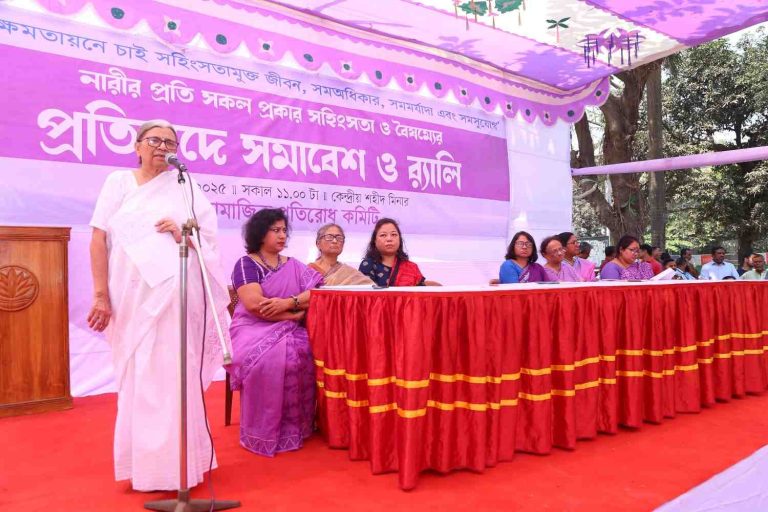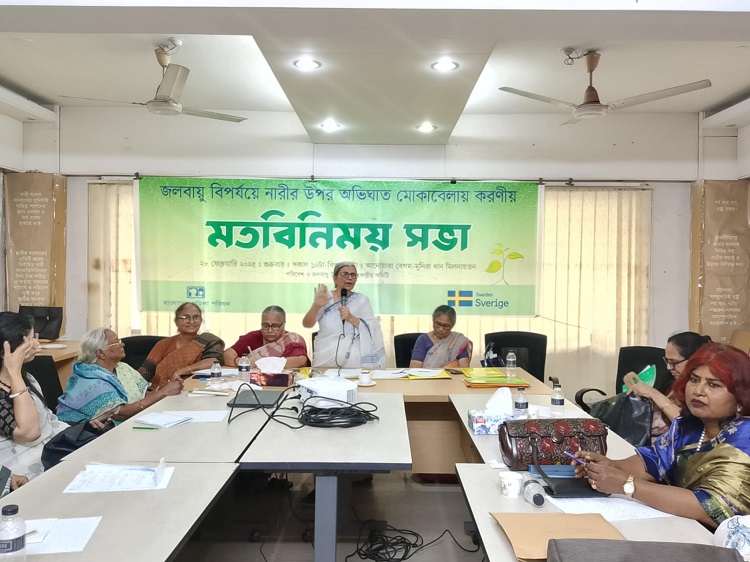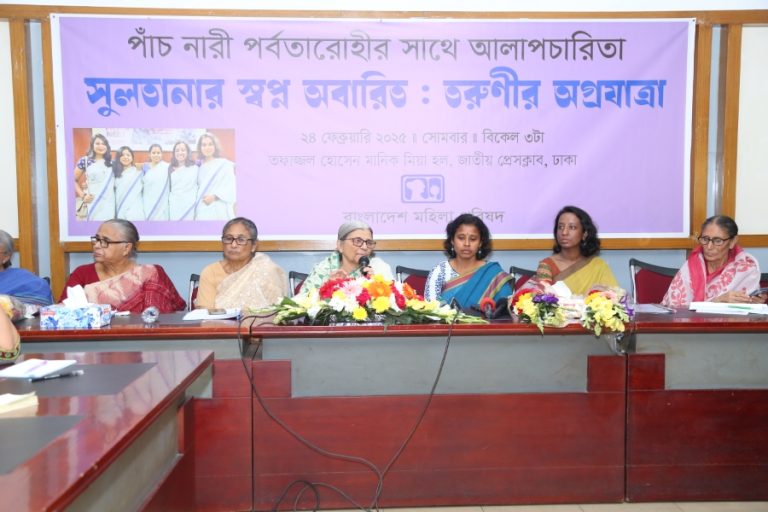A pre-budget discussion session on ‘Ensuring Gender Equality for Women through Investment’ was held on Sunday, March 10, 2024 at Anwara Begum Munira Khan auditorium by Bangladesh Mahila Parishad (BMP). The session was chaired by Dr. Fauzia Moslem, President of BMP. Shormindo Nilormi, Associate Professor, Department of Economics, Jahangirnagar University and a member of the central committee of BMP presented the keynote paper. Honorable Member of Parliament, Arma Dutta attended as guest of honor in the discussion program. Dr. Manjur Hossain, Research Director of BIDS; Dr. Khondaker Golam Moazzem, Research Director of CPD; Sajjadur Rahman, Deputy Secretary of The Business Standard; and Priti Chakraborty, Board of Directors of the Bangladesh Women Chamber of Commerce and Industry were presented as speaker in the program.
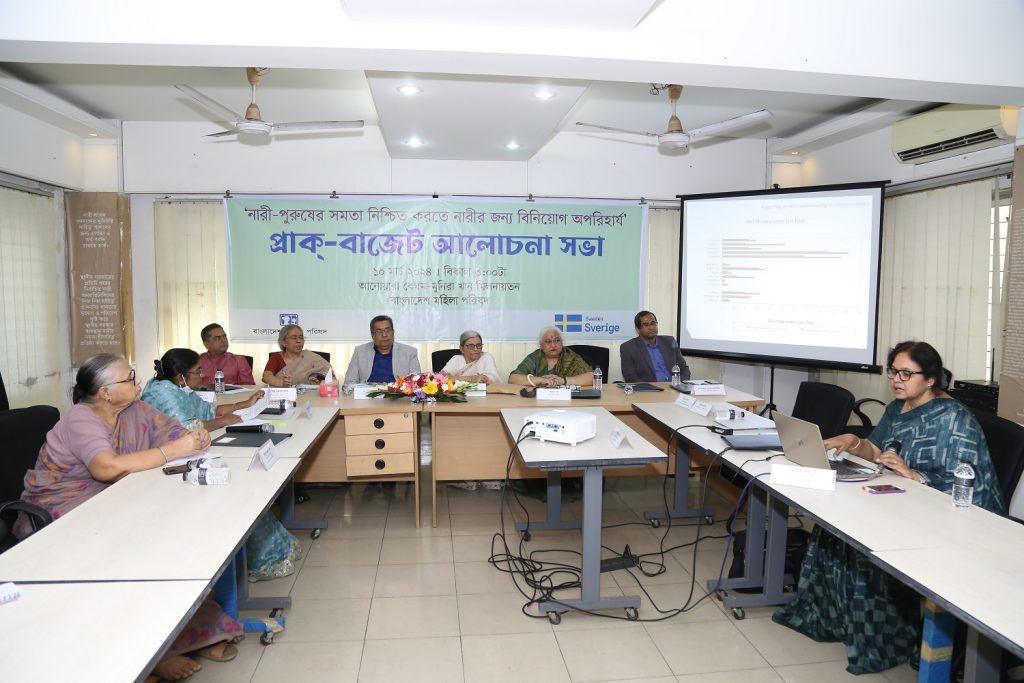
Dr. Fauzia Moslem, the President, explained that the government uses the budget to put its decisions into action. Programs for women’s development are now part of the country’s plans. It’s important to review the budget to make sure these programs are successful. To improve women’s rights, we need to invest in the economy. Women should be involved in all policies, like economic and security policies. The energy sector is the key to supporting and protecting women’s lives and safety.
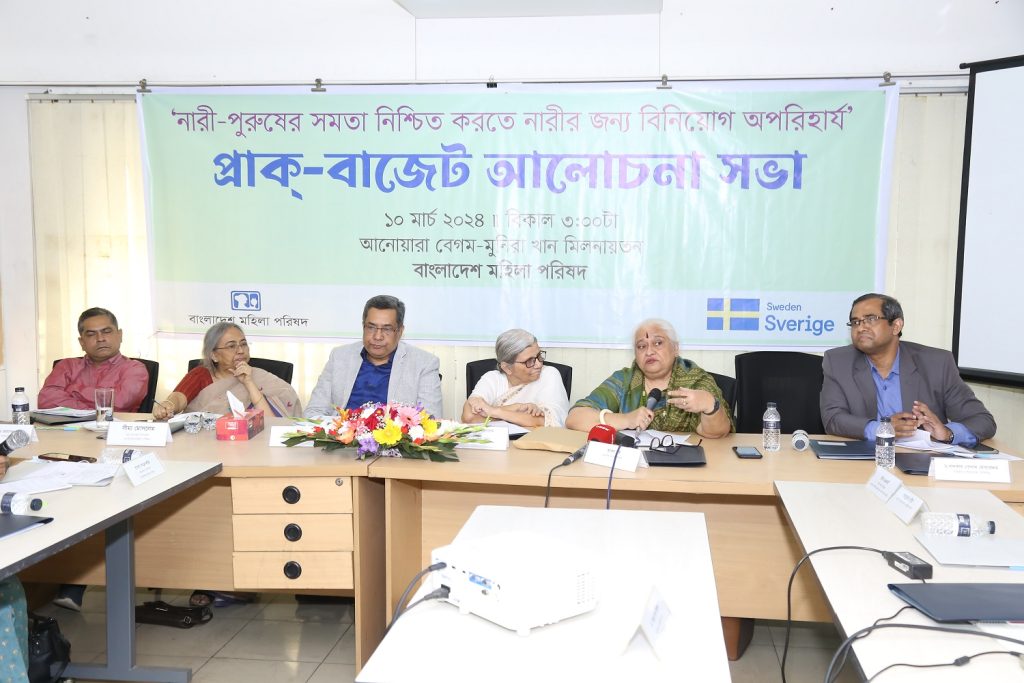
Joint General Secretary Shima Moslem said that women’s progress is at risk due to crises like wars, making it important to focus on investing in women. Gender budgets have been allocated in 44 government ministries in response to requests made by the women’s movement. However, it is imperative to assess their efficacy in promoting gender equality and reducing gender inequities. Gender-focused investments are critical. Research is needed to assess this from a gender perspective.
Honorable MP Arma Dutta raised concerns about women’s issues not being adequately addressed in the budget, emphasizing the need for policies and laws to empower women. Dr. Manjur Hossain highlighted progress in educational equality for young women but stressed the importance of economic empowerment and social support. He suggested formal initiatives to raise awareness about women’s rights, increase allowances for female-headed households, and implement targeted programs to boost women’s participation in economic activities.
Khondaker Golam Moazzem from CPD talked about the need to change how gender budgeting is defined. He recommended that parliamentary committees be consulted over the budget framework. Women are more involved in agriculture, but men are being displaced in other sectors. There are wage gaps between men and women, showing gender inequality. Bangladesh is expected to become a higher-income country by 2026, which could negatively affect women.
Sajjadur Rahman from The Business Standard emphasized the importance of investing in women’s empowerment, childcare, education, and healthcare. While progress has been made in girls’ education, more research is needed on their participation in higher education and the workforce. There are disparities in creating opportunities for both boys and girls in Bangladesh, urging government and NGOs to promote workforce participation.
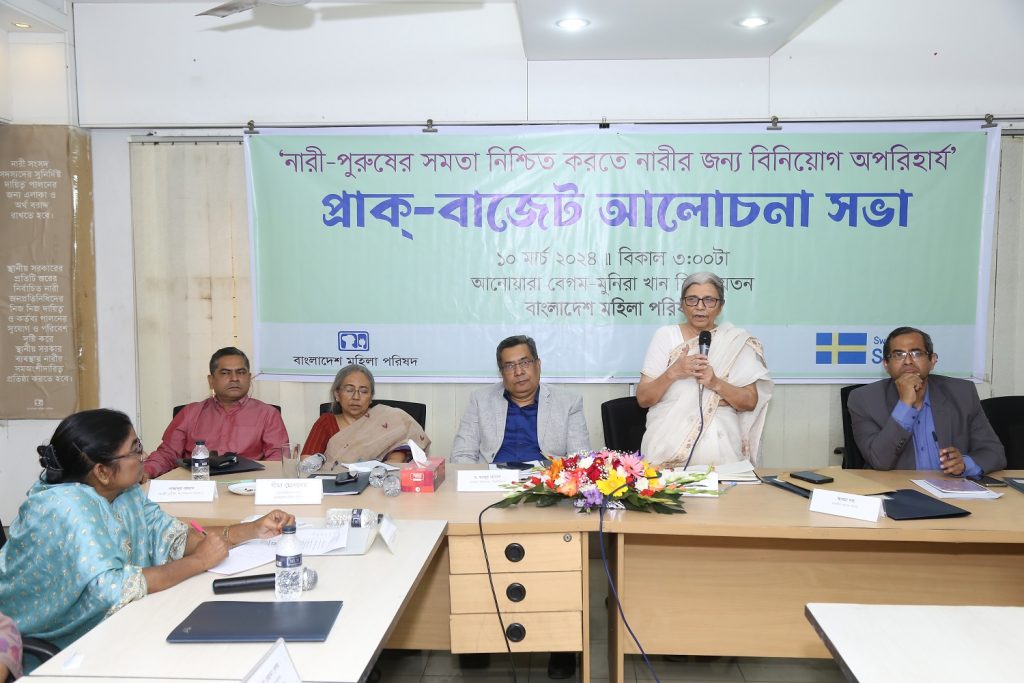
While presenting the keynote paper, Shormindo Nilormee talked about Bangladesh’s economy compared to other countries like Norway, Vietnam, and Japan. She said improving the economy is important for women’s progress. She suggested women should have their own bank accounts for empowerment. She highlighted the need to understand the country’s actual situation. Research shows that many men in cities think women should tolerate abuse, and women’s work participation is decreasing. This calls for a review of budget allocation. More focus is needed on programs for women in agriculture, as their participation has increased to 76%. To support gender equality, more projects for women should be included in budgets, ensuring their rights, equality, and empowerment.
This discussion meeting was attended by around 80 people, including the leaders of the organization’s central committee, media representatives, and members of the organization were present at the discussion forum.
The event was moderated by Rabeya Khatun Shanti, Secretary of the movement (BMP).

